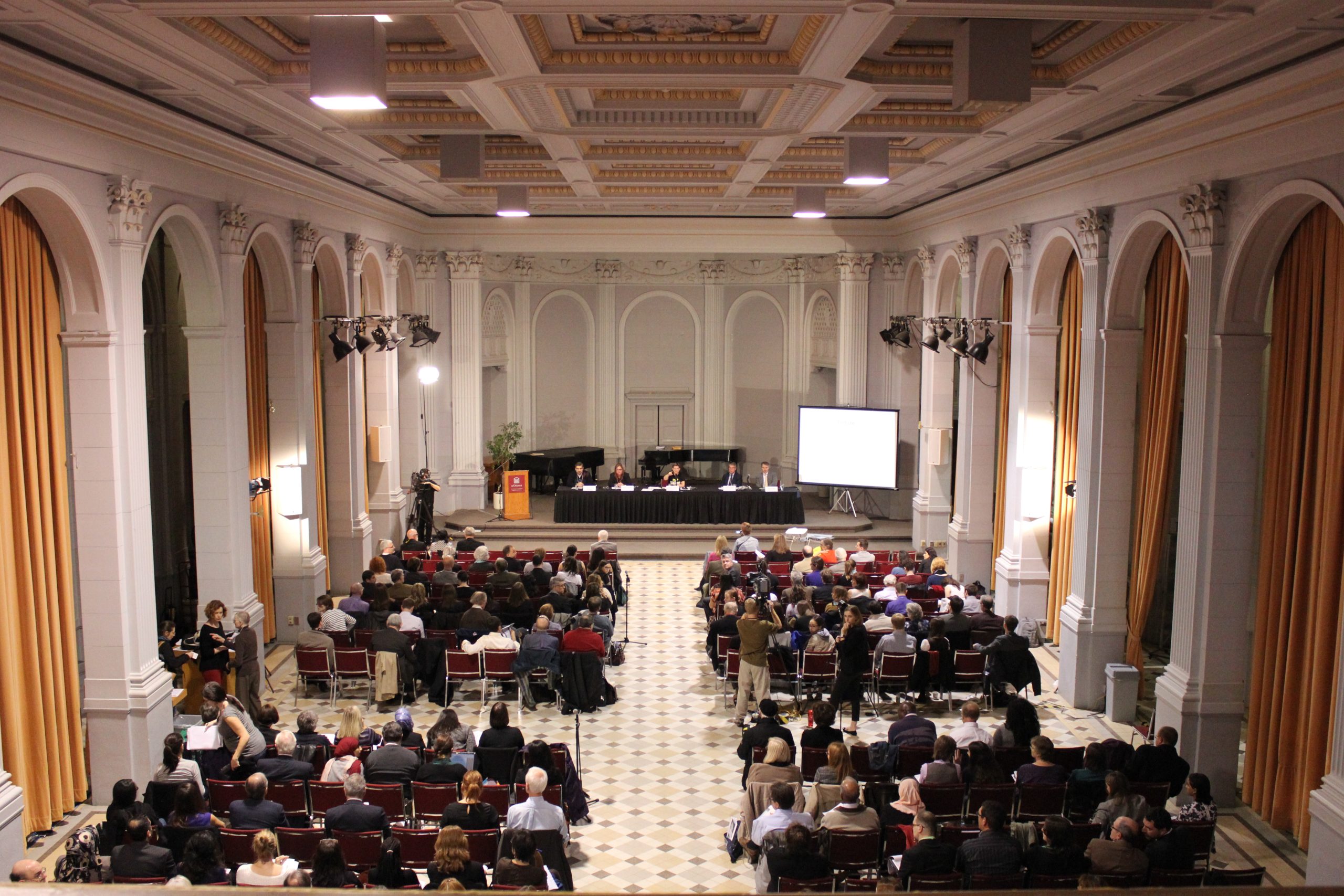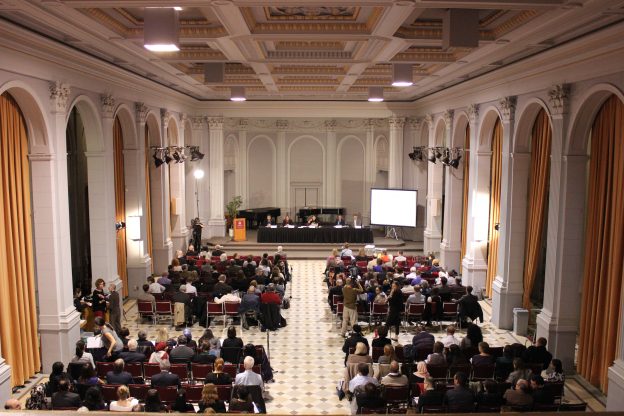
Arar+10 conference, uOttawa. ICLMG/Sebastian Packer
This essay is part of ICLMG’s new 20th anniversary publication, Defending Civil Liberties in an Age of Counter-terrorism and National Security. Join us for the online launch on Sept. 11, 2024, at 7pm ET. Click here for more information and to register.
By Roch Tassé
In the aftermath of the September 11, 2001 attacks, the United States, and Canada under pressure from its neighbour, rushed into the adoption of a series of anti-terrorism laws and other counter-terrorism measures, notably in the area of border control, air transportation and terrorist listing. That opened the door for the unprecedented deployment of surveillance technologies and data collection on individuals, and enabled practices of social sorting and profiling, virtually putting an end to privacy protection regimes until then viewed as a fundamental right in so-called democracies.
The International Civil Liberties Monitoring Group (ICLMG) was born out of concerns about the impacts of these laws and measures on civil liberties, human rights, refugee protection, international humanitarian law, racial justice, political dissent and the justice system.
The coalition was created in May 2002, six months after the adoption of Canada’s Anti‑terrorism Act (ATA) in 2001 to serve as a forum for information-sharing, collective action and the development of common policy positions to protect the rule of law, civil liberties and human rights from attacks in the name of national security. It brought together international development and humanitarian NGOs, unions, professional associations, faith groups, environmental organizations, human rights and civil liberties advocates, as well as groups representing immigrant and refugee communities in Canada.
A central focus of our work was to analyze legislation, monitor its application and document the impacts of the so- called ‘War on Terror’ with a view to intervening during the parliamentary review of the ATA scheduled to take place five years after its adoption.
To carry this out, we proactively developed collaborations and alliances with international counterparts. Domestically, we reached out to other civil liberties groups, grassroots organizations, and collaborators in the legal and academic communities. Nurturing relationships and building networks became a feature of the ICLMG’s work in the many campaigns waged over the next 20 years. And throughout our journey we ended up collaborating with some of the best and most committed activists, researchers, jurists and human rights lawyers in Canada.
Very early on, we also engaged with policy makers and the press, and soon became a credible voice on the Hill. The ICLMG appeared before numerous parliamentary committees over the years and has been present in the country’s mainstream media to this day.
But while immersed in research and policy work, we were soon confronted with the human face of anti-terrorism, which drove our agenda for the next 20 years.
In the fall of 2002, we were introduced to Monia Mazigh during a meeting at Amnesty International Canada. The CIA had disappeared her husband and sent him to Syria where he was being tortured under the US rendition program. The case of Maher Arar revealed and confirmed the existence of this infamous program. Over the next year, the ICLMG and its members supported Monia in a relentless campaign for his repatriation, against efforts by CSIS and the RCMP to block his return to Canada.
Then, in December 2002, a security certificate was issued against Mohamed Harkat. His case, along with that of four other men, marked the beginning of many of the ICLMG’s interventions on the issue of ‘secret trials’ and deportation to torture. These and more individual cases will be discussed in the following texts.
2004: The O’Connor Commission
Following the return of Maher Arar to Canada, in the fall of 2003, the ICLMG lobbied and mobilized support for a public inquiry into the events leading to his rendition. In January
2004, the Liberal government established a Commission of Inquiry to look into the actions of Canadian officials in connection with the Arar case. Presided by Justice Denis O’Connor, the Commission was also mandated to make recommendations with respect to oversight and review of the RCMP’s national security activities.
The ICLMG was granted intervener status by the Commission and for the next two years we monitored the entire process, attending almost all of the hearings. During the proceedings, the ICLMG was invited by Justice O’Connor to participate in a roundtable discussion on oversight and review of national security operations. In their final submission to the Commission, our lawyers, Warren Allmand and Me Denis Barrette, proposed a detailed model for a complaint and review mechanism.
In its final report in September 2006, the Commission exonerated Maher Arar and found that Canadian officials had given the United States false information about him. Justice O’Connor also recommended the creation of an integrated oversight and complaint mechanism for all Canadian intelligence and security agencies. The model recommended differed from the one put forward by the ICLMG, but incorporated many of its elements.

